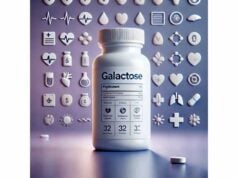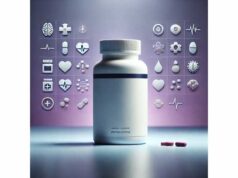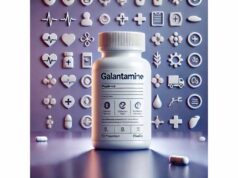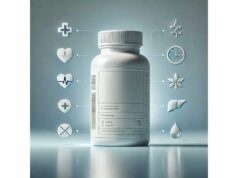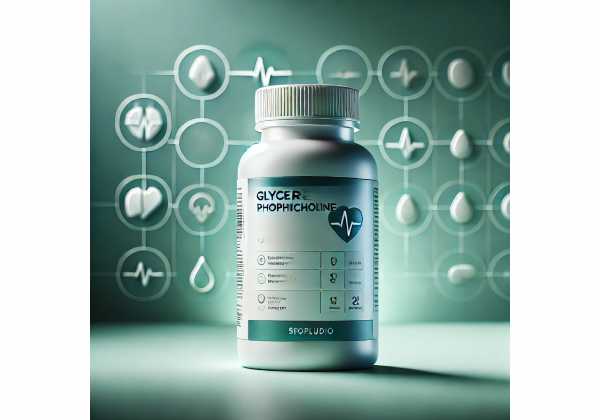
Glycerophosphocholine (often called alpha-GPC or choline alphoscerate) is a bioavailable choline compound used to support brain function and, increasingly, athletic performance. In the body, it donates choline—an essential nutrient your neurons use to make acetylcholine, a neurotransmitter tied to attention, memory, and muscle activation. Compared with common choline salts, glycerophosphocholine is well absorbed and crosses the blood–brain barrier efficiently. Research in people with age-related cognitive changes has explored daily, medically supervised dosing, while smaller studies in healthy adults look at short-term effects on power output and reaction time. Most users take modest doses to complement sleep, diet, and training rather than to replace them. This guide explains how glycerophosphocholine works, who it might help, how to dose it sensibly, what to watch for with side effects, and how it compares to other choline sources you may see on supplement labels.
Quick Overview
- May support memory and attention in some adults; evidence is stronger in cognitive impairment than in healthy people.
- Typical supplemental range: 300–600 mg/day; up to 600 mg 30–60 minutes before workouts; higher doses (e.g., 1,200 mg/day) have been used clinically under supervision.
- Side effects are usually mild (headache, GI upset), but very high choline intakes can cause hypotension, sweating, and fishy body odor.
- Avoid if pregnant or breastfeeding without clinician guidance; use caution with anticholinergic or cholinergic medications.
Table of Contents
- What is glycerophosphocholine?
- Proven benefits and limitations
- How to take and dose it
- Using GPC for workouts
- Side effects, risks, and precautions
- GPC vs other choline sources
What is glycerophosphocholine?
Glycerophosphocholine (GPC) is a water-soluble phospholipid derivative that carries choline—the building block your body needs to make the neurotransmitter acetylcholine. You will see it labeled as alpha-GPC or choline alphoscerate. Inside the body, alpha-GPC breaks down to free choline and glycerophosphate; neurons combine choline with acetyl-CoA to synthesize acetylcholine, which is central to memory encoding, attention, and neuromuscular signaling. Because alpha-GPC is amphiphilic and relatively small, it is well absorbed in the gut and reaches the brain efficiently compared with many standard choline salts.
GPC naturally occurs in small amounts in foods (and in cell membranes as they are remodeled), but the quantities from diet are minor compared with supplemental doses. In supplement form, alpha-GPC typically provides a high percentage of choline by weight, so a 600 mg capsule delivers a meaningful amount of choline to the bloodstream. That choline doesn’t just feed acetylcholine; it can also be oxidized to betaine (a methyl donor) or incorporated into phosphatidylcholine for cell membranes. That versatility is part of why choline status influences many systems—brain, liver, and muscles included.
Clinically, alpha-GPC has been studied for decades in people with cognitive disorders, including vascular cognitive impairment and Alzheimer-type symptoms, often at higher daily intakes than are used for general supplementation. In sports nutrition, interest comes from acetylcholine’s role at the neuromuscular junction: better acetylcholine availability may sharpen motor unit recruitment, supporting explosive efforts or reaction time. Small trials have investigated acute, pre-workout dosing for that reason.
A helpful way to think about GPC: it is not a stimulant and it does not force neurotransmission beyond physiological capacity. Instead, it supports the substrate (choline) your brain and muscles need to operate efficiently. That means its effects are usually most noticeable when combined with fundamentals—adequate sleep, balanced diet, skill practice, and, for athletes, structured training. If those are in place, adding a choline-rich form like GPC can be a rational step for targeted goals.
Finally, note the naming: “alpha-GPC,” “L-alpha-Glycerylphosphorylcholine,” and “choline alphoscerate” all refer to the same active compound. You may also see “GPC” used generically to mean the supplement. When comparing products, confirm the labeled amount refers to alpha-GPC itself (not just elemental choline) so dosage expectations match what research has used.
Proven benefits and limitations
When people ask whether glycerophosphocholine “works,” they usually mean two things: does it actually support cognition, and does it help active people perform better? The honest answer is nuanced.
On cognition, the strongest data come from adults with cognitive impairment—conditions where acetylcholine signaling is often compromised. Multiple controlled studies and pooled analyses suggest alpha-GPC can modestly improve some cognitive and functional outcomes when used regularly at clinical doses. Improvements are most consistently seen in domains like attention and behavior scales rather than dramatic changes on global dementia scores. That pattern makes sense: acetylcholine is closely tied to attention and executive function, while complex memory networks involve many other pathways. For healthy young adults, evidence is far thinner. A handful of small trials report benefits on specific tasks (vigilance, reaction times, psychomotor speed), but results are mixed and sample sizes are usually small. If you are cognitively healthy, expect subtle, task-level effects at best—not a sweeping boost.
In sports performance, a common hypothesis is that additional choline availability can support acetylcholine release during high-demand efforts, potentially translating to higher peak force or power. Several small experiments have explored this idea. Across them, the most promising findings involve short-term increases in lower-body force or power and occasional improvements in reaction-time-related tasks after single doses or brief loading. At the same time, other studies show little to no effect on broader endurance measures or repeated sprint performance. The variability likely reflects differences in dose (e.g., 300 vs 600 mg), timing, test selection, training status, and whether participants were choline-replete at baseline.
A few practical conclusions follow from the evidence:
- Who benefits most? People with low choline intake, higher cognitive demands, or specific neuromuscular performance goals may notice more. Those already eating choline-rich diets (eggs, meat, certain legumes) and performing at a high level may see smaller returns.
- Time course matters. Cognitive studies usually use daily dosing for weeks to months; performance studies often test a single pre-workout dose. Your expectations should match the protocol.
- Magnitude of effect is modest. Even when studies are positive, effect sizes are typically small—enough to matter for targeted goals but not transformative on their own.
- Quality of evidence varies. Clinical cognitive trials include larger, longer protocols; sports studies are commonly exploratory with small samples. Treat bold performance claims cautiously unless replicated.
Taken together, glycerophosphocholine looks most reliable for supporting attention-related measures in cognitively vulnerable adults, with potential—but not guaranteed—benefits for specific strength-power outcomes in trained or recreationally active people. For healthy cognitive enhancement, its role is plausible but not well established. As always, broader lifestyle factors (sleep, training quality, cardio-metabolic health, social engagement) exert larger effects than any single supplement.
How to take and dose it
There is no single “official” dose for every goal, so practical ranges depend on context and the literature:
- General cognitive support in healthy adults: Many begin with 300–600 mg/day of alpha-GPC, taken once or split into two doses (morning and early afternoon). Starting low helps you judge tolerance (some people feel “wired” if they exceed their needs).
- Targeted pre-task focus (study, exams, long meetings): 300–600 mg taken 45–60 minutes before the task. Pair with hydration and a protein-rich meal earlier in the day to avoid queasiness on an empty stomach.
- Clinical cognitive protocols (under medical care): Trials in cognitive impairment have used 1,200 mg/day, typically split into 3 × 400 mg with meals for months. This is a therapeutic regimen—do not self-prescribe without clinician guidance.
- Elemental choline context: Alpha-GPC provides a high proportion of choline by weight (a 600 mg capsule yields a substantial choline dose). This contributes to your total daily choline intake, which also comes from food. Keep that in mind with long-term use.
Timing: For steady cognitive support, consistent daily dosing is reasonable. For performance or demanding mental tasks, a single dose 45–60 minutes prior is typical, which aligns with absorption and peak plasma choline. Avoid taking late in the evening if you notice sleep disruption.
With or without food? Alpha-GPC is water-soluble and absorbs well either way. If you experience nausea, take it with a small meal or snack. Some users find a light carbohydrate source helps comfort during pre-workout use.
Cycling: There is no established need to cycle alpha-GPC, but many people take 2–5 days on, 2–3 days off for pre-workout use or use workday-only dosing for focus. For multi-month cognitive protocols prescribed by a clinician, follow the plan provided.
Stacking: Because alpha-GPC supports acetylcholine, some combine it with B-vitamins (supporting methylation) or omega-3s (membrane health). If you use caffeine, you may prefer lower caffeine doses than usual when adding alpha-GPC to avoid jitteriness. Be cautious mixing with other cholinergics (e.g., huperzine A) unless a professional advises it—too much cholinergic tone can cause headaches or brain fog in sensitive individuals.
Monitoring response: Track one or two outcomes that matter to you (e.g., proofreading speed, coding errors, vertical jump, barbell velocity). Evaluate after 2–4 weeks for daily regimens or after 3–5 sessions for pre-workout use. If you experience headaches, acid reflux, unusual sweating, or irritability, reduce the dose or discontinue and reassess.
Special populations: Pregnant or breastfeeding individuals have different choline needs and safety considerations—do not add alpha-GPC without medical guidance. People with mood disorders should monitor any change in affect; a minority feel “flat” on higher cholinergic tone. If you take anticholinergic or cholinesterase-inhibiting medications, discuss potential interactions with your prescriber before use.
Using GPC for workouts
Interest in alpha-GPC among lifters and field-sport athletes stems from acetylcholine’s role at the neuromuscular junction: it is the chemical trigger that tells your muscle fibers to contract. The idea is simple—if choline availability is a bottleneck during high-frequency motor unit firing, then supplying more substrate might help achieve or sustain peak output for short bursts.
What the gym-relevant studies do: Most performance experiments give 300–600 mg alpha-GPC, wait 45–60 minutes, and then test isometric mid-thigh pull, countermovement jump, peak bench power, or sprint outputs. Several report modest acute increases in peak force or power, particularly at the 600 mg dose. Not every test shows benefit; endurance capacity and repeated sprint performance are less consistently affected. Importantly, these are small studies—often 8–20 participants—so treat the effect sizes as preliminary rather than definitive.
How to try it, practically:
- Choose a dose: Start at 300 mg on your first two sessions to check tolerance. If no effect and no side effects, consider 600 mg on a third session.
- Time it: Take it 45–60 minutes before your main explosive work (e.g., Olympic lifts, heavy triples, jumps).
- Control variables: Keep caffeine and carbohydrate intake similar across sessions while you evaluate alpha-GPC; otherwise you will not know what caused any change.
- Measure something: Use a jump mat, bar-velocity tracker, or even rep PRs at a fixed RPE to track output.
- Decide based on data: If performance nudges up without side effects, reserve alpha-GPC for high-priority days (max power, testing, competition warm-ups). If you do not see a difference after 3–5 trials, it is reasonable to stop—your baseline choline status may already be sufficient.
Expectations: Any benefit will likely be small and task-specific. Think of it as a fine-tuning aid, not as a replacement for sleep, technique, glycogen, or confidence under the bar. Some athletes also report better mind-muscle connection or tactile focus, which aligns with acetylcholine’s attention role, but these are subjective.
Common stack questions: Can you pair alpha-GPC with creatine? Yes—creatine supports ATP availability while alpha-GPC supports signaling; they act on different constraints. With beta-alanine or nitrates, there is no known conflict. With high-dose caffeine or yohimbine, watch for jitteriness or headache.
Hydration and cramps: Acetylcholine is involved in muscle contraction, but cramps are multi-factorial (fatigue, electrolyte balance, pacing). Alpha-GPC does not directly prevent or cause cramps; ensure fluids and electrolytes match the session.
Finally, consider opportunity cost. If your supplement budget is tight, prioritize creatine, betaine (if relevant to your sport), and carbohydrates around training before allocating funds to alpha-GPC. Once essentials are covered, a small, well-designed test of alpha-GPC can be worthwhile for athletes chasing marginal gains.
Side effects, risks, and precautions
Most people tolerate glycerophosphocholine well at typical doses, but any compound that increases cholinergic tone can cause side effects in sensitive users—especially when combined with other cholinergics.
Common, usually mild effects:
- Headache or head pressure (often dose-related; reduce or split doses).
- GI discomfort such as nausea or loose stools (taking with food usually helps).
- Insomnia or restlessness if taken late in the day.
- Increased sweating or salivation in those sensitive to cholinergic effects.
Less common concerns:
- Mood changes (occasionally a “flat” or irritable feeling with higher doses).
- Hypotension or dizziness at very high total choline intakes across diet and supplements.
- Fishy body odor is a classic sign of excessive choline (due to trimethylamine).
Daily choline limits: Independent of the form, extremely high choline intakes are not advised. Tolerable upper intake levels (ULs) for choline are set to reduce the risk of hypotension, sweating, GI symptoms, and odor; your total choline comes from food plus supplements. If you supplement daily, keep track so you do not drift into excessive intakes over time.
Medication interactions:
- Anticholinergic drugs (some antihistamines, certain bladder or GI medications) oppose acetylcholine signaling. Adding alpha-GPC may partially counteract their effects, and the combination can increase side-effect unpredictability.
- Cholinesterase inhibitors (e.g., donepezil for dementia) increase acetylcholine availability. Combining with alpha-GPC could raise cholinergic tone further; any such combination should be supervised by the prescribing clinician.
- Blood pressure agents: Because very high choline intake can lower blood pressure in some people, monitor if you are on antihypertensives.
Populations needing extra caution:
- Pregnant or breastfeeding individuals: Choline is essential during pregnancy, but supplemental alpha-GPC has not been established as safe in this group at typical nootropic or sports doses. Work with your OB or dietitian to meet needs through food and standard prenatal guidance.
- People with mood or anxiety disorders: A minority feel worse on high-choline strategies. Start low, monitor, and discontinue if mood deteriorates.
- History of stroke or high stroke risk: Some observational data have raised concerns about long-term, high-frequency use of alpha-GPC and later stroke risk. Observational studies cannot prove causation, but if you have cerebrovascular disease or multiple risk factors, discuss any plan for chronic alpha-GPC use with your neurologist and prioritize risk-factor control (blood pressure, lipids, glucose, exercise).
Signs you should stop and seek care: Severe headache, confusion, chest pain, new neurological symptoms, or allergic reactions warrant immediate discontinuation and medical evaluation.
Bottom line: At modest doses (e.g., 300–600 mg/day), alpha-GPC is generally well tolerated by healthy adults. Respect total choline intake, avoid doubling up with multiple cholinergic supplements, and loop in your clinician if you use relevant medications or have vascular risks.
GPC vs other choline sources
Labels can be confusing: choline bitartrate, phosphatidylcholine, citicoline (CDP-choline), and alpha-GPC all deliver choline but differ in percentage of choline by weight, how they are metabolized, and practical use cases.
Choline salts (e.g., choline bitartrate):
These are inexpensive and provide high elemental choline, but they are less efficient at raising brain choline and may cause GI upset or fishy breath at higher doses. They are reasonable for meeting daily choline needs when cost is the primary constraint, but they are not the top choice for brain-targeted goals.
Phosphatidylcholine (PC):
PC is a major membrane phospholipid found in egg yolks and soy lecithin. Supplements vary in purity and choline density; PC contributes to membrane maintenance and liver health, but, gram for gram, it yields less free choline than alpha-GPC. PC is a good choice for dietary support, especially for people who prefer food-derived forms, but less so when you want a compact, brain-directed choline source.
Citicoline (CDP-choline):
Citicoline is choline bound to cytidine. It increases both choline and cytidine (which converts to uridine), potentially supporting phospholipid synthesis and neuronal membrane repair. Citicoline is widely used for cognitive goals and has a strong safety profile. Its choline yield by weight is lower than alpha-GPC, but some people prefer its “feel,” possibly due to the uridine pathway.
Alpha-GPC (GPC):
Alpha-GPC provides a high percentage of choline by weight and crosses the blood–brain barrier efficiently. It is often chosen when you want a compact capsule size with robust choline delivery and when your goal is task-level focus or neuromuscular support. It tends to be more expensive per milligram than choline salts, similar to or slightly more than citicoline depending on brand and region.
Which should you choose?
- For general choline adequacy at low cost: choline salts or dietary strategies (eggs, meats, legumes).
- For brain-directed support with compact dosing: alpha-GPC or citicoline.
- For liver-membrane emphasis or a food-like option: phosphatidylcholine.
- For pre-workout neuromuscular focus: alpha-GPC is the most studied choline form.
Quality checklist for supplements:
- Verify the label specifies alpha-GPC and lists milligrams per serving clearly.
- Favor brands that provide a certificate of analysis verifying identity and purity.
- If you are sensitive to fillers or moisture, note that alpha-GPC can be hygroscopic; stable formulations (often mixed with silica or presented as stable salts) are a plus.
- Start with single-ingredient products before trying blends, so you can interpret your response.
Diet first, then supplement: Most adults can reach the adequate intake of choline through food—egg yolks, beef liver, chicken, fish, and some legumes are standouts. If you rarely eat these foods or follow a plant-exclusive diet without careful planning, a choline supplement may help close the gap; then consider alpha-GPC or citicoline if you have specific performance or cognitive aims.
References
- The effect of 6 days of alpha glycerylphosphorylcholine on isometric strength 2015 (RCT)
- Choline – Health Professional Fact Sheet 2024 (Guideline)
- Activity of Choline Alphoscerate on Adult-Onset Cognitive Dysfunctions: A Systematic Review and Meta-Analysis 2023 (Systematic Review)
- Association of L-α Glycerylphosphorylcholine With Subsequent Stroke Risk After 10 Years 2021 (Cohort)
Disclaimer
This article is for general information and education only. It does not provide medical advice and is not a substitute for diagnosis, treatment, or personalized recommendations from a qualified health professional. Nutrient needs, medication interactions, and risk profiles vary. Always consult your clinician before starting, stopping, or combining supplements—especially if you are pregnant or breastfeeding, have a medical condition, or take prescription drugs.
If you found this guide useful, please consider sharing it with a friend or on Facebook, X, or your favorite platform, and follow us for future updates. Your support helps us continue creating clear, evidence-based resources.



